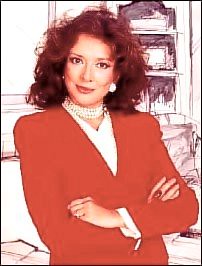It’s been a tough week for 8-year-old girls in America.
In Virginia, Sunnie Kahle was denied return to her current Christian school for not being girly enough. In a letter to her grandmother--her legal guardian--the school inferred that Sunnie’s alternative gender identity was causing confusion among other students and that it was not in line with the school’s biblical teachings. Administrators admitted that she was a very good student and that they “love” her, but I guess not enough to let her keep learning in their institution…unless she wears a dress and grows her hair.
In South Carolina, Olivia McConnell asked her state representative
to sponsor a bill making the Wooly Mammoth the official state fossil. With
strong historical and scientific support behind his young constituent’s
proposal, Representative Robert Ridgeway brought it to vote in the House, and
it passed 94-3. All was a go until Senator Kevin Bryant insisted on amending
the bill to include a passage from the Bible explaining the creation of
life…which is another banging-head-on-desk essay for another day. Olivia’s bill
is currently stalled, not for lack of historical significance, but because a Christian
fundamentalist cannot remember that religion has no place in our government, or
that the earth is over 6000 years old. He must've missed third grade.
 And in Colorado, Kamryn Renfro was suspended for shaving her
head, which she did in support of her best friend who was bald due to the
effects of chemotherapy treatments. Her crew cut was deemed
And in Colorado, Kamryn Renfro was suspended for shaving her
head, which she did in support of her best friend who was bald due to the
effects of chemotherapy treatments. Her crew cut was deemed
So we’re punishing young girls for being themselves, for
honoring scientific discovery, and for standing with those who are too weak to
stand themselves. We’re alienating them, diminishing them, and telling them to
hush up and sit pretty.
What. The. Heck.
At an age where these girls should be encouraged in their research,
individuality, expression, intelligence, initiative, and ability to connect with others,
these schools and politicians are stifling their mental and emotional growth which
so necessary is to become well-adjusted adults.
I don’t know the circumstances that led to Sunnie being
raised by her grandparents, but situations like that rarely arise because the
actual parents are doing an awesome job. So let’s assume she has had some
emotional discourse in her past. If she does indeed have gender identity
issues, kicking her out of school and away from her friends is not helping the
situation. Remember, this is a Christian school... I guess they forgot that
line in the Bible about “Suffer the little children to come unto me.” Nothing
in that passage about just the pretty
ones.
Kamryn said she shaved her head “because it seemed like the
right thing to do.” And it was. That sense of empathy is to be applauded in a
child, because it shows strong character. Instead of being sent home, Kamryn
should have been given an assembly in which to explain her action and inspire
her classmates.
And really, Senator Bryant. Leave your Bible where it belongs, in your church of choice and your own home. Keep it out of Congress. Try to learn something from this third-grader today. Olivia will lend you her science book.
Don’t banish these girls for their haircuts and their boyish t-shirts. Don’t dismantle their budding interest in government and science while hiding behind your Bible-shield. The times, they have a-changed.
Keep at it, girls. When grown men in positions of power are
threatened by your drive, your passion, and your fortitude, you know you’re
doing something right.











